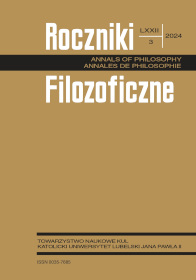Belief in Miracles and the Presumed Requirement of Extraordinary Evidence
Belief in Miracles and the Presumed Requirement of Extraordinary Evidence
Author(s): Robert LarmerSubject(s): Philosophy, Epistemology, Social Philosophy
Published by: Towarzystwo Naukowe KUL & Katolicki Uniwersytet Lubelski Jana Pawła II
Keywords: evidence; evil; Hume; laws of nature; miracles; naturalism; Newman; panentheism; pantheism; testimony
Summary/Abstract: In this paper, I criticize the commonly accepted view that belief in events plausibly viewed as miracles can only be justified if there exists extraordinarily strong evidence in their favour. Such a claim rests on the mistaken assumption that the evidence for such events must inevitably con-flict with what is taken as evidence against their occurrence, such as the evidence for the laws of nature or the existence of evil. Given the arguments I develop that such presumed conflict is apparent rather than genuine, it cannot be urged that belief in events best understood as miracles requires extraordinarily strong evidence before it is justified. This being the case, John Henry Newman’s observation that “miracles differ from other events only when considered relatively to a general system ... the same persons are competent to attest miraculous facts who are suitable witnesses of corresponding natural ones ... a physician’s certificate is not needed to assure us of the illness of a friend; nor is it necessary for attesting the simple fact that he has instantaneously recovered” can be seen to be correct.
Journal: Roczniki Filozoficzne
- Issue Year: 72/2024
- Issue No: 3
- Page Range: 277-292
- Page Count: 16
- Language: English

